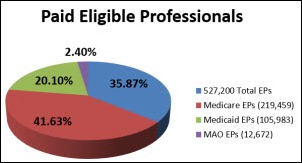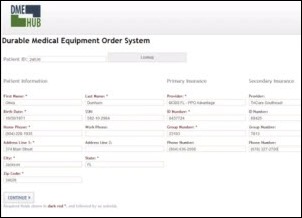The article about Pediatric Associates in CA has a nugget with a potentially outsized impact: the implication that VFC vaccines…
News 12/10/13
Practice Fusion closes a $15 million Series D round led by Qualcomm Ventures, bringing the company’s total funding raised to date to $149 million. Practice Fusion reports it now has over 300 employees, connects with 300 lab partners, and is actively used by 100,000 “medical professionals.”
Private physician offices are predicted to net profit margins of 12.7 percent in 2013, beating the 9.1 percent predicted for all private companies.
Patients in Fort Meyers, FL experience the longest in-office wait times in the country, according to the physician review and rating service ZocDoc, while Seattle patients have the shortest wait times. For 2013, more patients in Detroit used ZocDoc’s mobile apps to schedule appointments than in any other city.
PerfectServe introduces Clinical Event Push, which automatically informs physicians of important clinical events, such as patients presenting to the ED, patients admissions or discharges, lab test availability, and new consult orders.
From CMS: 75 percent of Medicaid EPs (106,000) have received an EHR incentive payment, though only 17 percent are meaningful users (disconcerting?) Medicaid EPs are not required to attest to MU to earn initial payments, unlike the 60 percent of Medicare EPs (220,000) who are considered meaningful users and have received an EHR incentive payment. Through the end of October, the government paid almost $17 billion in MU incentives, including $6.7 billion to EPs.
An autism module added to an EHR’s clinical decision support system improves screening rates for autism spectrum disorders, according to a study published in Infants & Young Children. Seventy percent of the study participants agreed that the automation of the screening process helped them adhere to recommended screening guidelines.
CMS proposes a revised MU timeline that would extend Stage 2 through 2016 and would begin Stage 3 in 2017 for providers who have completed at least two years in Stage 2. The start date for Stage 2 would not change – just the end date – though the Stage 3 start date would be delayed a year. The ONC says the goal is two-fold:
To allow CMS and ONC to focus efforts on the successful implementation of the enhanced patient engagement, interoperability and health information exchange requirements in Stage 2; and second, to utilize data from Stage 2 participation to inform policy decisions for Stage 3.
CMS is expected to release proposed rulemaking for Stage 3 and the certification criteria in the fall of 2014.
Aprima Medical integrates DMEhub into its EHR, allowing physicians to write orders for durable medical equipment directly from their Aprima EHR.
Email Inga.




